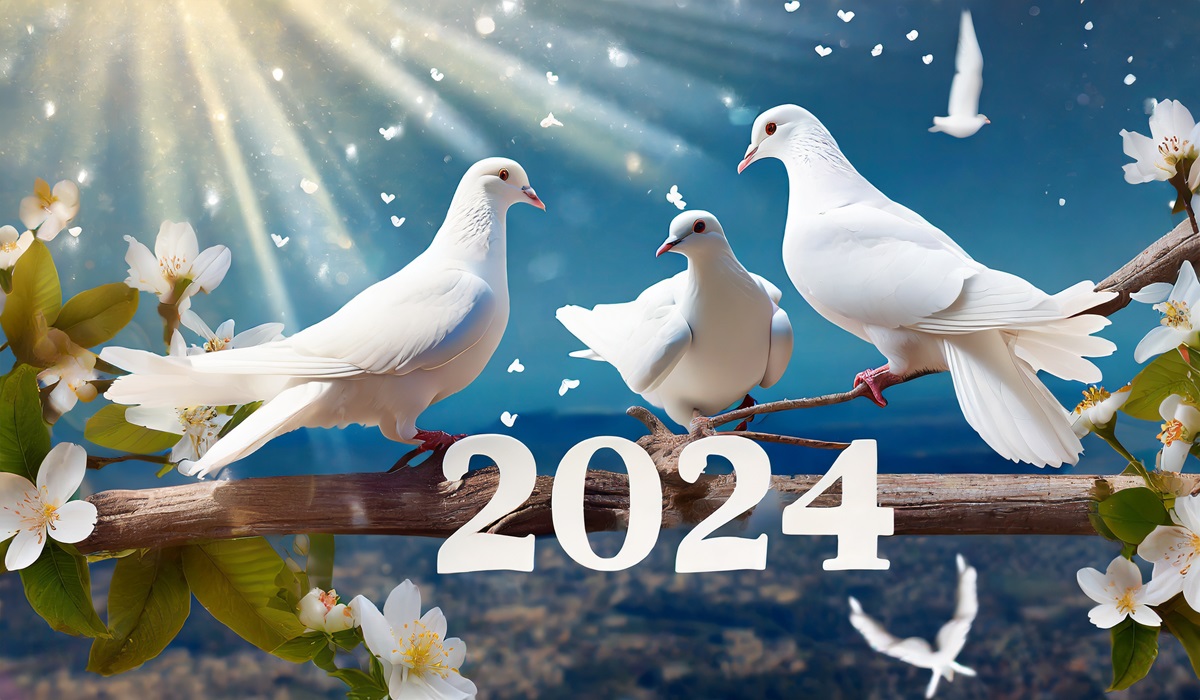Navigating the Crossroads: A Reflection on 2023 and the Quest for a Better World
- TDS News
- Trending
- World News
- December 31, 2023

As the curtains draw on the stage of 2023, we find ourselves standing at the crossroads of hope and uncertainty. The year has been a rollercoaster ride, marked by the persistent echoes of challenges that have tested the resilience of societies worldwide. In contemplating the future that lies ahead, it becomes imperative to scrutinize the realms of geopolitics, global health, social justice, and economic equality.
One of the pressing issues that demand our attention is the prospect of peace in war-torn nations. The scars of conflict mar the landscapes of countries, leaving behind shattered communities and fractured spirits. In the waning moments of 2023, the question persists: Can peace truly prevail in regions where the echoes of gunfire have drowned out the whispers of diplomacy?
It is tempting to succumb to cynicism and resign to the notion that some wounds are too deep to heal. However, if history has taught us anything, it is that the pursuit of peace is an ongoing journey, often fraught with setbacks. The global community must commit to addressing the root causes of conflict, rather than merely treating its symptoms. Sustainable peace demands diplomacy that transcends political posturing and embraces empathy, understanding, and compromise.
In the ongoing fight against infectious diseases, the specter of pandemics continues to haunt our collective consciousness. The lessons learned from the tumultuous years that have passed remind us that the threat of unseen adversaries is ever-present. As we peer into the horizon of 2024, it is crucial to fortify global health systems, foster international cooperation, and invest in research that not only responds to current crises but anticipates future ones.
The broken healthcare systems acrsoss many nations that have been laid bare by the pandemic cannot be bandaged with temporary solutions. A comprehensive overhaul is needed, rooted in the principles of accessibility, equity, and resilience. The rallying cry should be a commitment to ensuring that health is not a privilege but a fundamental human right, irrespective of geographical location or socioeconomic standing.
The tendrils of colonialism, though ostensibly severed in the past, continue to cast shadows on the present. The lingering effects of historical injustices are visible in the disparities that persist within and between nations. To forge a path towards a more equitable world, societies must confront the uncomfortable truths of their colonial legacies.
Addressing the aftermath of colonialism requires a paradigm shift in mindset—one that acknowledges the deep-seated inequalities perpetuated by historical power dynamics. Reparative justice, education, and dialogue are essential components of this transformation. By fostering an environment that promotes inclusivity and dismantles the structures that sustain inequality, societies can begin to heal the wounds inflicted by centuries of exploitation.
The specter of destitution remains a formidable adversary, enduring in the presence of economic prosperity in specific sectors. As we stand on the brink of a new year, the challenge lies not just in diminishing the effects of poverty but in eliminating them altogether. This necessitates a reassessment of economic systems that sustain the accumulation of wealth among a select few. The crucial solution lies in a fair and equitable distribution of resources, harmonized with sustainable development practices, unlocking the chains that bind vulnerable communities.
The intricacies of society are woven with diverse races, cultures, and identities. Yet, the stains of discrimination persist, casting a long shadow over the fabric of our collective existence. Race relations demand a concerted effort to dismantle the systemic biases that perpetuate inequality and prejudice. Honest conversations about privilege, diversity, and inclusion are the seeds from which a more harmonious future can blossom.
When it comes to immigration, the world finds itself grappling with the tension between borders and human dignity. The plight of refugees and migrants fleeing conflict, persecution, and environmental crises is a stark reminder of our interconnected global community. As we step into 2024, a compassionate and collaborative approach to immigration is imperative. The rhetoric of walls and exclusionary policies must give way to an ethos that recognizes the shared responsibility of nations to address the plight of those seeking refuge.
So, what does society need to do to make the world a better place, and how can we send a clear message to those in power about the change we need?
The answer lies in collective action and a resolute commitment to the values that underpin a just and compassionate world. Change begins at the grassroots, where communities, fueled by empathy and solidarity, challenge the status quo. It is imperative to hold those in power accountable, demanding transparency, accountability, and policies that reflect the collective will of the people.
To make 2024 ten times better than 2023, we must harness the power of unity. It is not enough to yearn for change; we must actively participate in the processes that shape our world. This means engaging in civic discourse, exercising our right to vote, and amplifying the voices of the marginalized. It requires a shift from complacency to activism—a recognition that the power to effect change resides within each one of us.
In the tapestry of human history, each year is a thread, contributing to the narrative of our shared existence. As we bid farewell to 2023 and stand on the precipice of a new chapter, let us be architects of a future defined by peace, justice, and compassion. The road ahead may be daunting, but it is only by facing the challenges head-on that we can pave the way for a world that transcends the limitations of the present. Together, let us embark on the journey towards a brighter, more equitable tomorrow.








